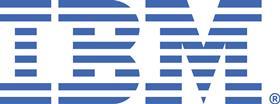Digital technology has a big part to play in helping the NHS deliver the ambitions of the forthcoming 10-year plan and address immediate operational pressures. The 3 December HSJ summit, in association with IBM, looked at how this could happen and what role AI might have in it.
In association with
Paul Corrigan, strategic adviser to health and social care secretary Wes Streeting, told the summit the NHS needs convincing that the three “big shifts” outlined in the government’s plans will happen.
The three shifts – hospital to community; treatment to prevention; and analogue to digital – had all been in various previous plans. “The main thing about these three things is they keep on not happening. And the secret has got to be this time making them happen,” he said.
Professor Corrigan, who is also one of the key people devising the new 10-year plan, added: “When I talk to NHS audiences about this, by and large, they say I don’t believe you’re going to make it happen and that these are sort of immutable things. The NHS is always going to be about hospitals, it’s always going to have fax machines… so how we shift this is the really crucial thing – the plan needs to actually persuade people that this is doable.”
A 10-year timeframe would help convince people of the shifts, he added – it was a long enough time for people to feel things should change during it anyway – while “changing the nature of the financial flows” and workforce training would also help.
Professor Corrigan also warned public engagement with the process of change was vital, as was the need to talk about “difficult trade-offs – what do you think about us doing this if you were to lose something.”
He added the acceptability of any attempt to re-imagine the NHS depended on genuine engagement with the public, without which they would see whatever emerged as a surprise “and we will then have problems”.
Professor Corrigan also told the audience it was vital when the NHS invested in new technology, it truly used the opportunity to take out existing costs.
He warned tech could just be another cost unless promised savings materialised. He pointed out that while he could look at digital information from the hospital where he had been treated, he also got letters, emails, phone calls and texts.
“There are people still employed sending me letters which only cause me confusion,” he said.
He added the NHS, with the centre’s help, had to get “much better” at “stopping things”, remarking that new technology introduced into the NHS “sits on top of previous innovations all the way down to the quill pen”.
Removing redundant costs was “the only way” to have “enough money flowing through the system to start to pay for the amount of [capital the service needs]”.
However, he also said that most tech companies he spoke to feel the NHS can be a “pretty bad partner”.
He said the industry’s main criticisms of the health service were that it was unsure what it wanted, meaning it often bought what it was offered, rather than co-developing solutions, and the length of time it took for contracts to be approved meant the NHS either purchased out-of-date tech or companies went bust waiting.
“We need to start partnering properly,” he said. “And for that, we need to think of what the big issues within the NHS are that we need to sort out in the next 10 years.”
Professor Corrigan also emphasised that “the ability to have interoperability [between IT] is greater and greater almost every year, but we are still constructing bits of pathways which are not interoperable… We need to ensure that whatever kit is being bought talks to other kit and that you’re not allowed… to construct bits of pathways that don’t talk to others.”
He added it would “be incredibly, incredibly important” that “everything needs to talk to” the NHS App. He cited as an example Epic’s MyChart, which is supplied alongside its electronic patient record system and provides patients with a wide range of useful information, but did not integrate with the NHS App, and said: “The NHS, in my view, should not buy the next generation of Epic if it doesn’t talk to the NHS App.”
How AI could make dashboards redundant within the next 10 years

Digital technology has a big part to play in helping the NHS deliver the ambitions of the forthcoming 10-year plan and address immediate operational pressures, such as the need to reduce waiting times to access elective care. The 3 December HSJ summit, in association with IBM, looked at how this ...
- 1
- 2
- 3
- 4
 Currently
reading
Currently
reading
NHS needs convincing government’s three shifts will happen, says Streeting’s adviser


































